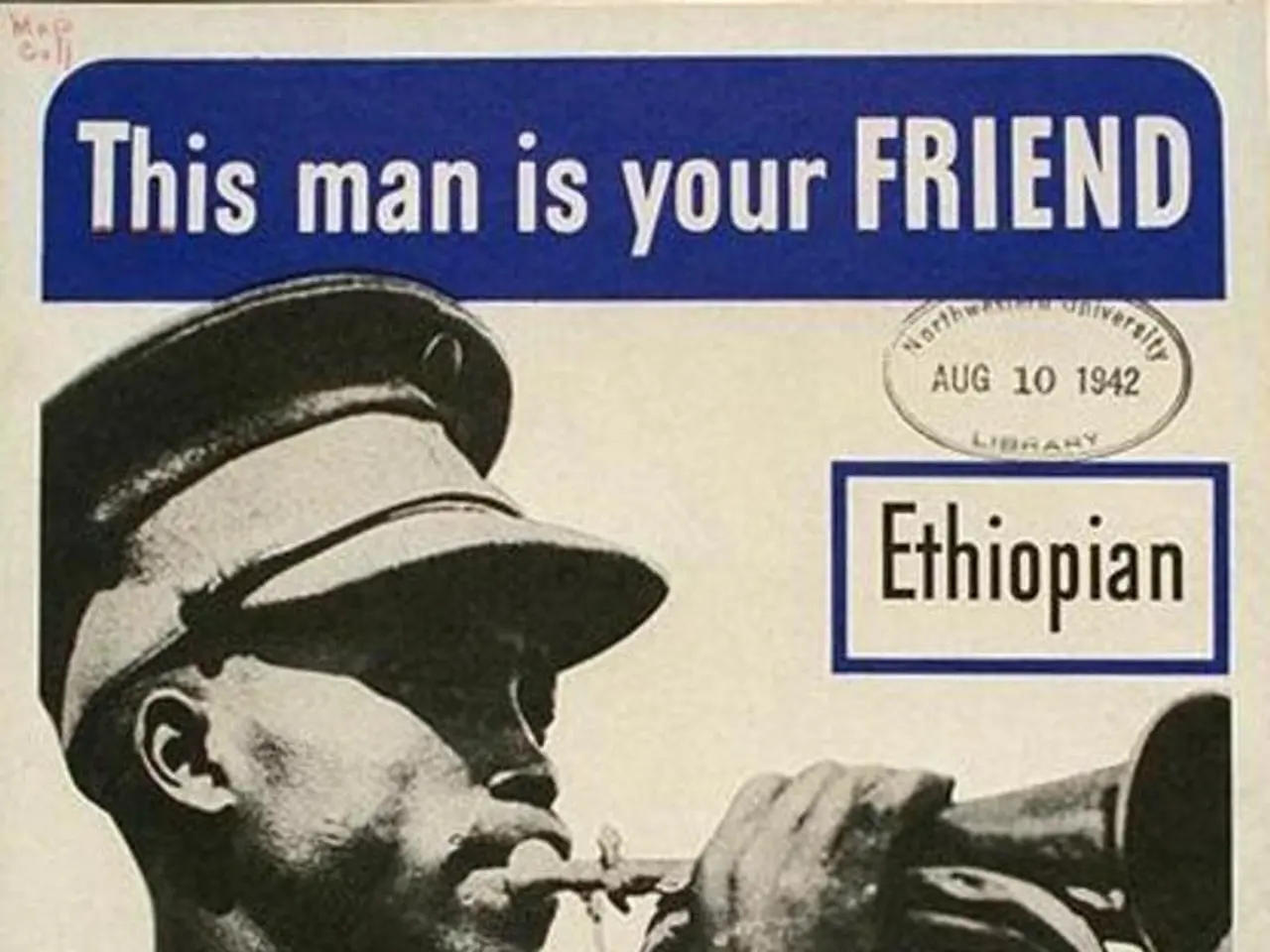Arrest of a comedy writer sparks heated discussion across the Atlantic about the boundaries of free speech in Britain
In a series of events that have sparked controversy and fueled the ongoing debate about free speech in the United Kingdom, comedian Graham Linehan was arrested at London's Heathrow Airport on Monday. The arrest, made by armed police officers, was due to three posts he wrote on X in April.
Linehan, co-creator of the popular sitcom "Father Ted," was accused of inciting violence. His arrest has been met with criticism from some quarters, with Nigel Farage, the leader of the Reform UK party, viewing it as "rather timely."
The arrest of Linehan comes at a time when the issue of free speech in the UK is under scrutiny. Nigel Farage was invited to give evidence before the US House of Representative's Judiciary Committee in Washington on Wednesday, for a hearing on "European threats to free speech."
The politician has been vocal about his concerns regarding freedom of speech in the UK. He recently criticized the state's handling of the matter, citing Linehan’s arrest as an example of the government becoming authoritarian and posing a serious threat to free speech.
Linehan's case is not isolated. Lucy Connolly, a mother and former nanny, was sentenced to 31 months in prison for a post she sent on X during anti-immigration riots in Britain. Connolly was convicted under the Public Order Act of 1986 for distributing threatening and abusive material intending to "stir up racial hatred."
The controversy surrounding Linehan's arrest and Connolly's sentence has led to calls for change. Mark Rowley, the head of the Metropolitan Police, urged the government to "change or clarify" the laws his officers must enforce, as they have been put in an "impossible position" by Britain's laws drawing them into "toxic culture-wars debates."
Jonathan Sumption, a former Supreme Court justice, also weighed in on the issue, writing in The Independent that merely indicating support for a terrorist organization without doing anything to assist or further its acts should not be a criminal offense.
The US State Department has also expressed concern about the state of human rights in Britain, publishing a report claiming that they have "worsened" over the past year, citing "serious restrictions" on free speech. The Vice President of the United States, JD Vance, has also criticized Britain's laws on free speech, citing multiple cases as proof that free speech is "in retreat" there.
However, Rep. Jamie Raskin, the top Democrat on the House Judiciary Committee, countered Nigel Farage's claims. He pointed out that the UK prime minister has not shut down the right-wing news broadcaster GB News, where Farage has hosted his own show, and that a leader of a Reform council barred a local newspaper and website from interacting with the authority.
Raskin warned the people of the UK against allowing Nigel Farage to "make Britain great again," stating that they might think twice before doing so after seeing what Trump and MAGA are doing to destroy freedom in America.
The debate about free speech in the UK continues, with both sides presenting their arguments. As the situation unfolds, it is clear that the issue is of great importance and will continue to be a topic of discussion in the coming days.
Read also:
- visionary women of WearCheck spearheading technological advancements and catalyzing transformations
- Recognition of Exceptional Patient Care: Top Staff Honored by Medical Center Board
- A continuous command instructing an entity to halts all actions, repeated numerous times.
- Oxidative Stress in Sperm Abnormalities: Impact of Reactive Oxygen Species (ROS) on Sperm Harm








